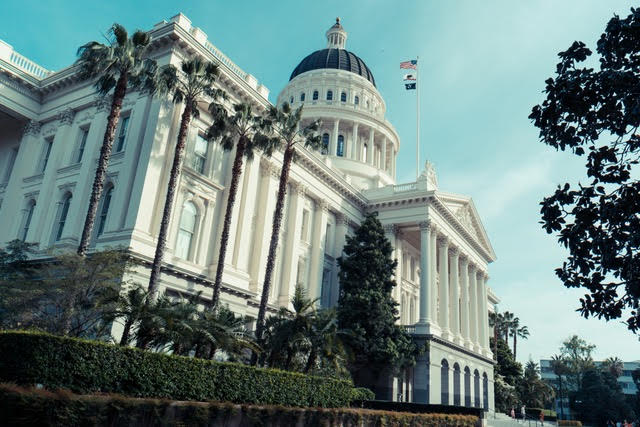
Strong Support, Harsh Criticisms Follow Gov. Newsom’s Budget Into Final Negotiations
Tanu Henry | California Black Media
On May 13, Gov. Gavin Newsom held a press conference in Sacramento to present his $300.6 billion revised budget for fiscal year 2022-23. He has dubbed the spending plan the California Blueprint. It is the largest budget proposal in the 172-year history of the state.
During the briefing, Newsom also announced that the state is expected to have a whopping budget surplus that will increase to $97.5 billion by the summer of 2023.
“Simply without precedent no other state in American history has ever experienced a surplus as large as this,” said Newsom.
“Backed by a robust surplus and grounded in our unshakable values, we’re paving the California way forward to prosperity and progress for all,” Newsom continued, summarizing his spending plan.
“With historic investments, we’re doubling down on our formula for success and making sure no one is left behind – supporting working families and businesses, tackling climate change, expanding health care access, making our communities safer, and more,” he said.
Newsom’s budget includes increased investments to the tune of hundreds of billions of dollars in education (at all levels), housing, the private sector, clean energy, agriculture, reproductive health, public safety, and more.
The Governor said as California makes investments and builds programs, its spending must reflect its values.
“California values make us competitive globally,” said Newsom. “There is a reason California’s economy outperforms every other economy in the Western Hemisphere – 7.8 % GDP growth just in the last year.”
Assemblymember Chris Holden (D-Pasadena), a member of the California Legislative Black Caucus and chair of the Assembly Committee on Appropriations , praised the Governor’s spending plan.
“I commend the Governor for conveying the message through programs, healthcare, and pay equity that California will continue to thrive,” Holden said. “The proposal sets strong precedent for those still struggling through the disparate impact of the pandemic and ensures that California continues to keep the environment top of mind.”
Reacting to the governor’s budget announcement, Republican leadership in the California Assembly criticized the Governor’s proposal, calling it “ineffective.”
“The Governor may not want to acknowledge it, but California is in crisis,” read the statement authored by Assembly Republican Leader James Gallagher (R-Yuba City), Assemblymember Vince Fong (R- Bakersfield), Vice Chair of the Assembly Budget Committee.
“Everyday Californians are being crushed by an affordability crisis worsened by 40-year high inflation,” Gallagher and Fong’s statement continued. “While the Governor makes flashy political headlines, he continues to fail to make investments that will help Californians endure these tough financial times.”
California’s second African American Superintendent of Public Instruction Tony Thurmond, said Newsom’s plan to invest $128.3 billion in education, “lifts up the most critical needs” of students and schools across the state.
“As we continue to recover from the COVID-19 pandemic, California public schools will see a much-needed infusion of investments at a time when students and schools, especially those that have been traditionally underserved, require more support than ever before,” Thurmond said.
Throughout his budget presentation, the Governor acknowledged the challenges Californians are facing because of rapid inflation.
“The most important thing on people’s minds, understandably, is ‘How do I lower costs?’ High inflation. Record inflation,” said Newsom. “What are we going to do to ease that burden?”
“That’s why we are proposing $18.1 billion dollars to put back in the pockets of tens of millions of Californians,” Newsom continued.
The governor’s inflation relief plan includes $11.5 billion in tax refunds; $2.7 billion in emergency rental assistance; $750 million for free public transit; $933 million in stipends for hospital and nursing home staff; $1.4 billion to help low-income families pay utility bills; $304 million in middle class health care subsidies; $439 million to offset a proposed diesel tax pause; $157 million to cover fee waivers for childcare, among other investments.
Assemblymember James Ramos (D-Highland), the only Native American member of the California Legislature, says he looks forward to working with the governor to hammer out the details of the budget plan.
“Confronting the deadly fentanyl crisis, retail theft, supporting mental health services and fighting to reduce the numbers of murdered and missing Indigenous people have also been the focus of my legislation since assuming office,” Ramos said.
Three days after the Governor unveiled his budget proposal, California’s non-partisan, independent Legislative Analyst’s Office (LAO) warned that the state could face an economic downturn soon.
“Predicting precisely when the next recession will occur is not possible. However, certain economic indicators historically have offered warning signs that a recession is on the horizon. Many of these indicators currently suggest a heightened risk of a recession within two years,” the LAO report stated.
Republican leaders criticized what they called the Governor’s ineffective proposals on the rising price of gas, housing affordability and the critical water shortage the state is facing.
“Ignoring the people’s financial burdens, the Governor refuses to provide immediate gas tax relief,” said Gallagher and Wong in their joint statement. “He did not propose any permanent tax relief to deal with a worsening affordability crisis exacerbated by his policies. Given the bone-dry conditions caused by the third year of drought, he stubbornly dismisses the cry to build more water storage and accelerate wildfire prevention projects.”
Under California state law, the Governor and Legislature must complete the budget negotiation process and approve the spending proposal for the next fiscal year by June 15. The Governor has until June 30 to sign it into law.
“This year’s budget is unprecedented in some of the challenges that it presents, but the Assembly has been preparing for months to meet those challenges,” said Assembly Speaker Anthony Rendon (D-Lakewood). “It is also reassuring to have the Senate and Pro Tem Toni Atkins as teammates for this budget process. We know how to work together to present Governor Gavin Newsom with a budget he can be proud to sign by the constitutional deadline.”





